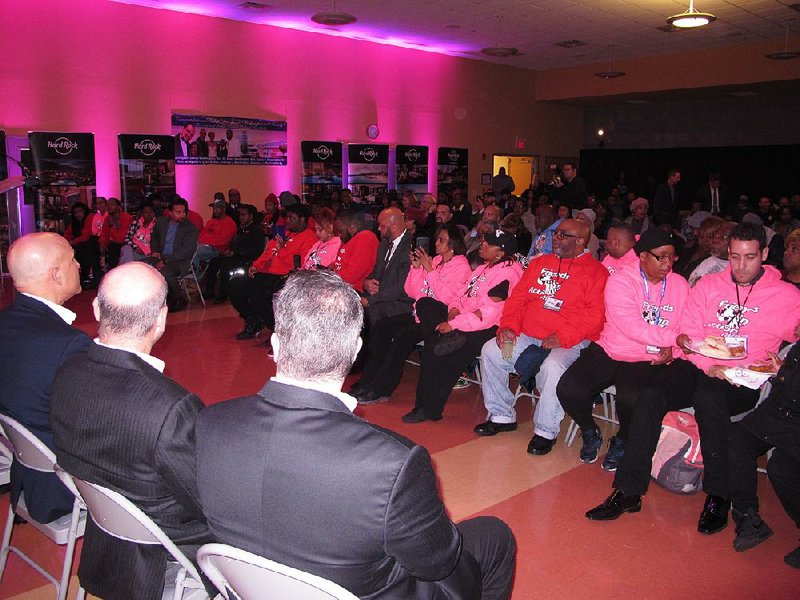ATLANTIC CITY, N.J. -- In a city where black residents have long felt excluded from the riches that Atlantic City's casinos generate, a new casino is making a strong effort to engage with the largely minority community in which it will operate.
Not only will Hard Rock hire locals to work at its music-themed casino resort on the Boardwalk. It also plans to train their children for careers in the industry, set aside free or discounted concert tickets for city residents, hire people who graduate from a drug-offense court diversion and treatment program, and will hold community meetings every three months to nurture ties to the community.
And the more than 100 people who attended a meeting last week with the company's top management will even get free coffee for the rest of the year once the casino opens this summer; some won trips to Hard Rock resorts around the country.
"It's extremely important [to dispel] the perception of the casinos living on their own island, isolated from the community," said Jim Allen, CEO of Hard Rock International and a veteran Atlantic City casino executive. "We want to reach out to our neighbors and make sure they know who we are. We believe it's important to make sure there's a true partnership."
That hasn't always been the case in the 40 years that casinos have been operating in Atlantic City. The most commonly voiced complaint from neighborhood residents is that they feel left out of the wealth the casinos have generated, even though casinos are required to reinvest a part of their revenue in community development projects.
"There was a time when the casino industry, our primary industry, was isolated from the community," said Bishop James Washington of the New Shiloh Baptist Church, which hosted last week's meeting with Hard Rock. "Each one was concerned about their individual business interest. The interest of the community may have been secondary. What Hard Rock is doing is fantastic. They're looking to invest in our community and opening their property and giving employment to people."
Atlantic City's main casino workers' union is about 65 percent nonwhite, said Bob McDevitt, president of Local 54 of Unite Here. That roughly mirrors the percentage of the casino workforce nationwide, he said.
Atlantic City resident Shakera McAllister said: "We've had people come into our city promising things and then don't bring anything to fruition. But it's not going to be like that this time."
Atlantic City Mayor Frank Gilliam Jr. said that of all Atlantic City casino companies, "Hard Rock has been the only institution that has come into the community and tried to break the chain of poverty."
In December, Hard Rock, its local investors and a community group started a program to train young city residents for careers in the construction trades. Shaim Russell is learning how to become a carpenter, and marveling at his good fortune.
"They gave 16 of us, just normal individuals who were struggling, a job, gave us the opportunity to have a career," he said. "I'm very grateful for it. It's the opportunity to provide for my family and make something better of myself."
Hard Rock will hire about 3,000 people when it completes its transformation from the former Trump Taj Mahal sometime this summer; June is the current estimate, Allen said.
He proposes a citywide program in which executives from each Atlantic City casino would staff and fund a program to train high school students for careers in their city's main industry.
"We want to create a curriculum to teach your children the business, just like I learned it," said Allen, who started out as a kitchen worker at Bally's making $6.18 an hour. "We have to teach people the business from the ground up. There's a way to clean a room and deal cards and greet a guest."
Company officials met after the meeting with black-owned business owners offering to sell paper products, auto detailing and other products and services to the casino.
"Give us a chance," Allen asked residents at the meeting. "We have to make money. There can't be animosity if the casino makes money. But we have to give back."
SundayMonday Business on 02/25/2018

